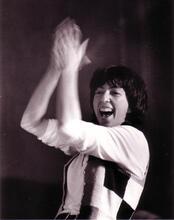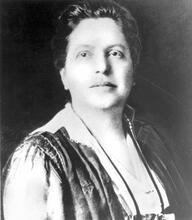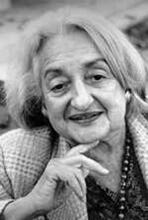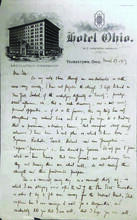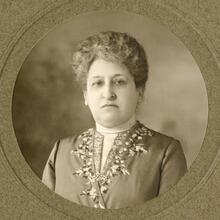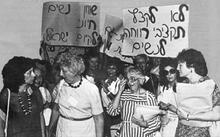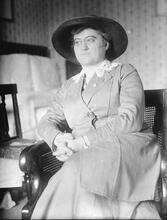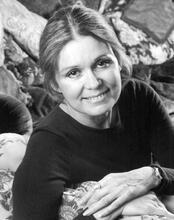Carol Nadelson
Carol C. Nadelson’s work in women’s mental health has changed how physicians and psychiatrists address women’s health. The child of blue-collar parents, she grew up in Brooklyn and broke the glass ceiling by becoming one of the few female doctors in the early 1960s and then a leader in her field of psychiatry. She altered how rape and incest victims, post-partum depression sufferers, and those with eating disorders have been treated; she thus recreated how we understand the workings of the brain. Currently, she is addressing unconscious sexism by training both men and women in the workforce to identify it and combat it.
Childhood
Born on October 13, 1936, in Brooklyn, New York, to Herman and Diana Cooperman, Carol Nadelson had a rather unremarkable childhood with her sister Brenda Cohen (b. 1940). She grew up in the Flatbush area of Brooklyn, attended public schools, and walked the mile to visit her mother’s parents. Her father, the child of immigrants from Eastern Europe, worked for the United States Post Office; her mother, an immigrant from Poland, left her job as a secretary when the couple married.
In 1947, Carol’s beloved maternal grandfather, Shlomo-Chaim Newman, developed lung cancer. Nothing could be done other than make him comfortable; indeed, in keeping with the practices of the time, no one even discussed with him what was wrong. Carol spent a great deal of time talking with and reading to him When he died, his children felt the funeral would be traumatic for the grandchildren, so they were sent to school. Carol, then aged twelve, was very upset, so she snuck out of school and went to the funeral anyway.
Her grandfather’s illness and death inspired Carol to become a doctor. She didn’t want anyone else to suffer the way he had. Her junior high school yearbook even remarked she would become a doctor. In high school, she was one of the only girls in the science classes. Her heroes included Marie Curie, as well as her Uncle Donald Newman and her Aunt Miriam G. Newman, who both encouraged Carol to become anything she desired.
Education and Training
After graduating from high school at sixteen, Carol went to Brooklyn College, where she immediately declared her major as pre-med, despite her parents’ discomfort with her career choice because they believed she would never find a husband. She graduated four years later magna cum laude, one of only two female pre-medical majors.
Carol graduated from University of Rochester Medical School in 1961. The sexual harassment by faculty and students, including the dismissal of female students’ comments during classes and what Carol felt was a sexist dress code of skirts for women, discouraged the other women from completing the program. Carol never discussed the harassment with her parents because it would have disturbed them, and the behavior was considered normal and acceptable at the time. She chose psychiatry after receiving an award for her work during her psychiatry rotation in medical school. From 1962 to 1964 she trained in psychiatry at Massachusetts Mental Health Center and from 1964 to 1966 at Beth Israel Hospital, both in Boston.
Family Life
During medical school, Carol married David Shandler. Once she started her residency, she and her husband realized they were incompatible, and he was not supportive of her desire to work as a physician. They soon divorced.
In 1965 Carol married Theodore “Ted” Nadelson, a fellow psychiatry student. They started a family in 1966 with the birth of their son Robert; a daughter, Jennifer, followed in 1969. Ted took on most of the childcare and home-making tasks, even after he became the Chief of Psychiatry at the Veteran’s Hospital of Boston, allowing Carol to pursue her career. This was a very novel pattern at the time, and he was often teased by his colleagues; not considering the arrangement peculiar, he was bothered by the teasing.
During the 1960s, working mothers were still a new idea in white middle-class society. There were few daycares. Carol met with other working mothers and they formed the first day care in Boston. It was a cooperative day care, in which the parents took turns caring for each other’s children. Carol and Ted had a nanny, who worked at the daycare caring for Robert and Jennifer and her own child.
Career
During the 1970s, Nadelson was appointed to the admissions office of Harvard Medical School and dramatically increased the number of female students. From 1975 to 1976, she was the first woman president of the Massachusetts Psychiatric Society. In 1979, she moved to Tufts University, outside Boston. In 1979, she became Professor of Psychiatry at Tufts University College of Medicine and Vice-Chair and Director of Training and Education in the Tufts Department of Psychiatry at New England Medical Center (NEMC). In 1984, she was elected as the first woman president of the American Psychiatric Association. She was also appointed editor-in-chief of the American Psychiatric Press. Under her leadership, this publishing house became a leader in the field of psychiatry.
Nadelson completed a National Institute of Mental Health (NIMH)-sponsored Career Teacher Fellowship in medical education. Following a sabbatical at Stanford’s prestigious Center for Advanced Study in the Behavioral Sciences, she returned to Harvard Medical School as a Senior Psychiatrist at Cambridge Hospital in 1992 and was promoted to Clinical Professor. She helped found the Association for Academic Psychiatry and became its president.
As Nadelson progressed through her career, she realized how unfairly women were treated in the workplace. For example, her first boss never thought she would want to be promoted. Nadelson had to ask him how to get promoted and do all the work herself, while men were offered the materials to apply and provided support by their co-workers. Women were still uncommon in the professional workforce and were not considered capable of holding a place of power. Nadelson studied the relationships between men and women in the workplace and their biases and developed strategies for ensuring equity between the two groups. In 1998, she became the first Director of the Office for Women's Careers at Brigham and Women's Hospital in Boston. Her goal has been to help women advance in their careers and train both men and women to recognize their unconscious sexism.
Research
Nadelson’s work on women’s mental health was groundbreaking. She studied the psychological impact of rape on a woman and discovered that many victims suffered from Post-Traumatic Stress Disorder (PTSD). She also worked with girls and women who were sexually abused. Previously, the medical focus had been on the physical well-being of the abuse victim.
Nadelson also examined post-partum depression, an illness brought about by the changing hormones in a woman’s body after giving birth. Before her work, doctors did not believe that women suffered depression from a physical cause, and women suffering from post-partum depressions were untreated and ignored.
Nadelson and her husband Ted both were very public about their support for victims of abuse by Catholic priests; they were asked to be part of a committee to advise Bernard Cardinal Law, who had been tasked with formulating the Catholic Church’s response, though he later ignored their advice. The Cardinal and his priests focused largely on how to help the priests, with little regard for the child victims. Nadelson had also advised the pope on how to address those with mental illnesses.
Nadelson also worked with patients who suffered from eating disorders. During the 1970s and 1980s, anorexia and bulimia proliferated among teenage girls, but little was known about it. Her research led to greater understanding of how the mind and the body affect those who develop eating disorders, thus assisting doctors in treating them.
Nadelson also began to realize that men and women react to medications differently. Medications had often been tested on male college athletes. Carol pushed to change the policies so medicine would be tested on different genders, sizes of people, and ages. This has resulted in fewer people, either male or female, having adverse reactions to medications.
Nadelson’s ultimate goal was to help women patients get better and more effective care. Her ground-breaking book series The Woman Patient, published in 1979, has influenced doctors ever since on how to treat women patients. Nadelson and her co-author Dr. Malkah Notman examined how physicians had treated women like children and made decisions about their women patients’ bodies without thinking about the psychological impact of having a breast or uterus removed. She followed this work with a number of books on similar subjects, examining the impact of gender differences on how people think, the importance of understanding reproductive health from a woman’s perspective, and how family violence affects a woman’s mental health.
Over the course of her long career, Carol Nadelson has published over 250 works and has edited 24 books.
Awards
World Psychiatric Association Presidential Commendation, 2020
Charles Force Hutchinson and Marjorie Smith Hutchinson Medal, 2017
Honorary D.Sc. from Brooklyn College, 2011
Alma Dea Morani, M.D., Renaissance Woman Award, 2009
Alexandra Symonds Award, 2002
Elizabeth Blackwell Award, 1985
Benjamin Rush Psychiatry Award, 1961
Life Time Achievement Award, Massachusetts Psychiatric Association, 2006
“Carol C. Nadelson, M.D.” Women in Medicine Legacy Foundation, n.d., https://www.wimlf.org/carol-c-nadelson-md.
“Carol Cooperman Nadelson, MD: Foundation Board Member, Professor, Psychiatry, Harvard Medical School.” The Foundation for the History of Women in Medicine, 2015, https://collections.countway.harvard.edu/onview/files/original/28b03ca8791019fd3190cd03776bb94d.pdf.
Cullen, Kevin, “Sex abuse specialists say Law rejected advice.” Boston Globe, 7 June 2002, https://www.bostonglobe.com/news/special-reports/2002/06/06/sex-abuse-specialists-say-law-rejected-advice/AF228i3wKSEam62ZySw1hI/story.html
“Dr. Carol Cooperman Nadelson.” Changing the Face of Medicine, n.d., https://cfmedicine.nlm.nih.gov/physicians/biography_233.html.
Nadelson, Carol. “Carol Nadelson.” Our Fifty-Year Journeys The University Of Rochester School Of Medicine And Dentistry Class Of 1961, University Of Rochester, 2011.
Nadelson, Carol. “My Path to Leadership: A Rocky Road That Other Women Physicians Know.” Psychiatric News, July 30, 2019, https://psychnews.psychiatryonline.org/doi/10.1176/appi.pn.2019.8a20.
Okie, Susan. “When There are Two Doctors in the House.” The Washington Post, October 7, 1990, https://www.washingtonpost.com/archive/lifestyle/wellness/1990/10/07/when-there-are-two-doctors-in-the-house/d52c4369-d0fe-46c9-8458-736a42f41899/?utm_term=.378f788dc1f9.
Philipp, Julie. “Girls Don’t Do That.” Rochester Medicine, March 23, 2014, https://www.urmc.rochester.edu/smd/alumni/rochester-medicine/blog/june-2014-1/girls-don-t-do-that.aspx.
“School of Medicine and Dentistry.” University of Rochester, 2017, http://www.rochester.edu/commencement/2017/school-of-medicine-and-denti….


